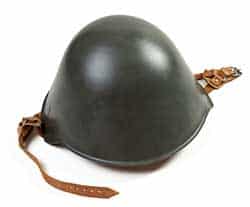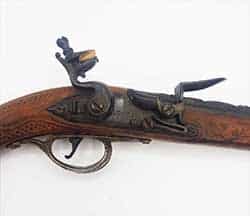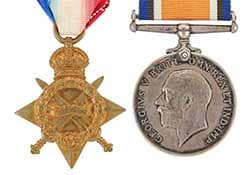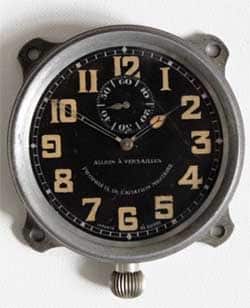
If you have a passion for military history, collecting military antiques and war memorabilia might be a great hobby for you. Military antiques are items that are associated with a particular branch of the armed forces or a particular war. These items can range from uniforms and weapons to medals, insignia, and other memorabilia. In this article, we’ll explore the fascinating world of military antiques, the types of antiques you can find, where to look for them, how to buy and sell them and how to appraise their value.
Introduction to Military Antiques

Military antiques are popular among collectors and enthusiasts, and with good reason. These items often have a rich history behind them, and many of them are valuable as well. They are also interesting to look at and can be a great conversation piece. Whether you’re an experienced collector or a novice, this article will introduce you to the world of military antiques. The year 2022 saw a global increase of 7% in online spending within the antique market and this includes the niche area of militaria. Collectors in this area will pay high prices for the right object in the right condition so it’s an area that is worth investing in.
Types of Military Antiques
There is an incredible variety of military antiques available. You can find items from various wars, from ancient times to the present day. There are many different types of collectible military antiques, including items such as firearms, swords, uniforms, medals, and other items. Some militaria collectors focus on a specific type of antique or a particular conflict or time period, while others collect a wide range of items from different eras and conflicts. Some popular types of military antiques include Civil War artifacts, World War I and World War II memorabilia, and items from the Revolutionary War and other conflicts. Additionally, many collectors are interested in vintage military firearms, such as muskets, rifles, and handguns, as well as swords and other edged weapons.
Finding Military Antiques and War Memorabilia

If you are looking for antique militaria, there are a few different places you can try. One option is to visit our antique shop, military surplus stores, and other retailers that specialise in selling vintage and collectible items. These types of stores may have a wide range of military antiques for sale, including firearms, uniforms, medals, and other items.
Another option is to attend militaria shows and events, where collectors and dealers come together to buy, sell, and trade a wide range of military antiques. These shows are a great place to find a wide variety of items, as well as to learn more about the history and value of different types of militaria.
You can also try looking online, on websites such as eBay, Etsy, and other online marketplaces that specialize in the sale of vintage and collectible items. These websites often have a wide range of military antiques for sale, and you may be able to find some rare and unique items that are not available in brick-and-mortar stores.
Finally, you can try reaching out to other collectors and joining a militaria club or group. These groups often have regular meetings where members can buy, sell, and trade items, and they can also provide valuable information and advice to new collectors.
Selling Military Antiques
If you want to sell military antiques, there are several steps you can follow to increase the chances of making a successful sale:
1. Research the item to determine its value and history. This will help you accurately describe the item and set a fair price.
2. Take high-quality photos of the item from multiple angles, including any markings or details that may be important to potential buyers.
3. Create a detailed description of the item, including its history, provenance, and any unique features or characteristics.
4. Consider using an online marketplace, such as eBay or Etsy, to reach a wider audience of potential buyers.
5. Set a fair and competitive price for the item, taking into account its condition, rarity, and historical significance.
6. Be prepared to answer any questions potential buyers may have about the item, and be open to negotiating on the price if necessary.
Overall, the key to successfully selling military antiques is to thoroughly research the item, provide detailed and accurate information, and set a fair and competitive price.
Collecting Military Antiques
Collecting militaria antiques can be a rewarding hobby, but it’s important to follow a few key steps to ensure that you’re collecting authentic and valuable items:
1. Research the different types of militaria antiques and become familiar with their historical significance, rarity, and value.
2. Join a militaria collecting community or club, where you can learn from experienced collectors and gain access to resources and information.
3. Attend militaria auctions, shows, and other events to see a wide range of items and meet other collectors.
4. Carefully inspect any items you’re considering purchasing, looking for signs of authenticity, such as markings or stamps, and paying attention to the condition of the item.
5. Don’t be afraid to ask questions and seek expert advice before making a purchase.
6. Keep detailed records of your collection, including information about each item’s history, provenance, and value.
Overall, the key to collecting militaria antiques is to thoroughly research the items you’re interested in, carefully inspect them before purchasing, and keep detailed records of your collection. By following these steps, you can build a valuable and interesting collection of militaria antiques.
Military Antique Appraiser

A military antique appraiser is a professional who specializes in evaluating and valuing military antiques, such as weapons, uniforms, medals, and other items of historical significance. Military antique appraisers have a deep knowledge of military history and are able to accurately determine the value of an item based on its age, condition, rarity, and provenance. They may work independently, for an auction house, or for a museum, and may be called upon to provide appraisals for insurance purposes, estate planning, or for sale. To become a military antique appraiser, it’s important to have a deep knowledge of military history and a keen eye for identifying and valuing antiques. Some appraisers may also have a background in art, antiques, or history.
Conclusion
Military antiques can be a fascinating and rewarding hobby. With the right knowledge and resources, you can start collecting these items and build an impressive collection. Whether you’re looking to buy or sell, it’s important to do your research and consult experts. Visit Antiques Store to explore the world of military antiques and find the perfect items for your collection.
